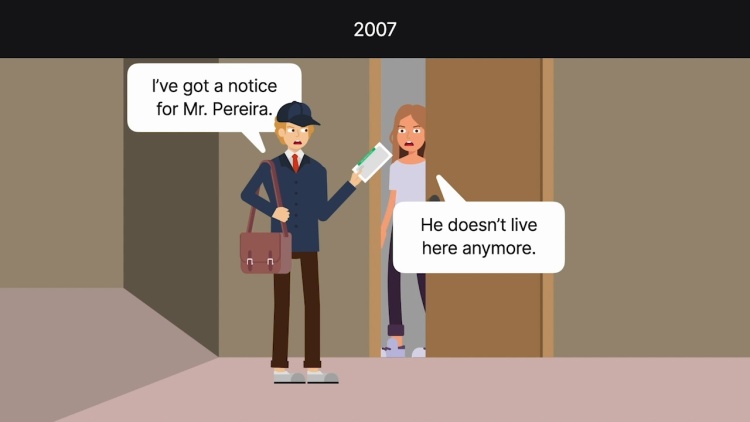Pereira v. Sessions
United States Supreme Court
138 S. Ct. 2105 (2018)

- Written by Eric Cervone, LLM
Facts
Wescley Pereira (defendant) was a native of Brazil. In 2000, Pereira was admitted to the United States as a temporary non-immigrant visitor. After Pereira’s visa expired, he remained in the United States. In 2006, Pereira was arrested. While Pereira was detained, the federal government (plaintiff) served Pereira in person with a document labeled “Notice to Appear.” This putative notice did not specify the date and time of Pereira’s removal hearing. The court then attempted to mail Pereira a more specific notice setting the date and time for his hearing. That notice was returned as undeliverable. Because Pereira never received notice of the time and date of his hearing, he failed to appear. The immigration court ordered Pereira removed in absentia. Pereira was unaware of the removal order and remained in the United States. In 2013, Pereira was again arrested. The immigration court reopened Pereira’s removal proceedings. Pereira applied for cancellation of the removal, arguing that he met the cancellation criteria of being continuously present in the United States for at least 10 years. Pereira claimed that the stop-time rule was not triggered by the initial notice because that document lacked information about the time and date of his hearing. The Supreme Court granted cert.
Rule of Law
Issue
Holding and Reasoning (Sotomayor, J.)
Concurrence (Kennedy, J.)
Dissent (Alito, J.)
What to do next…
Here's why 899,000 law students have relied on our case briefs:
- Written by law professors and practitioners, not other law students. 47,000 briefs, keyed to 994 casebooks. Top-notch customer support.
- The right amount of information, includes the facts, issues, rule of law, holding and reasoning, and any concurrences and dissents.
- Access in your classes, works on your mobile and tablet. Massive library of related video lessons and high quality multiple-choice questions.
- Easy to use, uniform format for every case brief. Written in plain English, not in legalese. Our briefs summarize and simplify; they don’t just repeat the court’s language.





